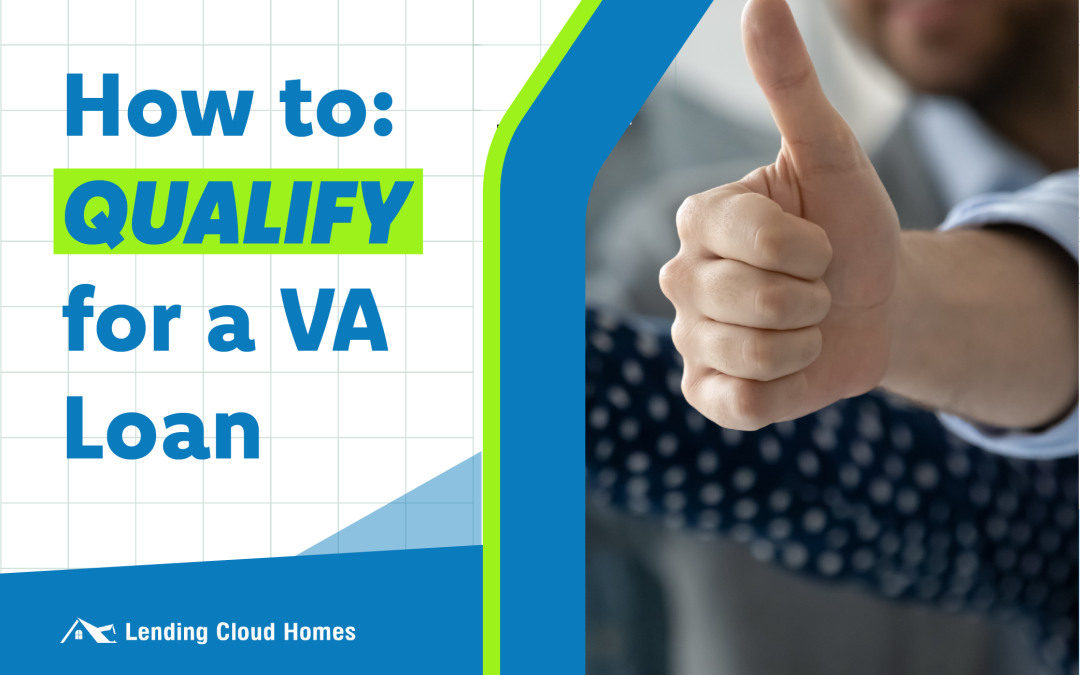If you are looking for a loan to purchase a home and you are a veteran of the United States military, you may be in luck. While there are several service requirements that must be met, you could qualify for a VA Loan. This loan, backed by the Department of Veterans Affairs, is intended to help service members and surviving spouses of the armed forces to purchase affordable housing.
Let’s jump in feet first and see what it takes to qualify.
Requirements for a VA Loan
Eligibility for a VA loan is determined by the minimum service requirements determined by the Department of Veterans Affairs. You or your spouse must meet these requirements, have a valid COE (Certificate of Eligibility), and meet the credit and income qualifications of the specific lender of the loan.
The VA might qualify you for a loan if you meet one or more of the following:
- Served 90 consecutive days of active service during wartime
- Served 181 days of active service during peacetime
- Served 6 years in the National Guard or Reserves OR
Served 90 days (at least 30 of which are consecutive) under Title 32 orders
- Are the spouse of a service member who died while serving or due to a service-related disability
Even if you do not meet any of these listed requirements, however, you could still be eligible. In such cases, your eligibility will depend on the type of discharge category you fall into. The following discharge types may yet still qualify:
- Discharged for hardship, at the convenience of the government, or as a reduction in force
- Discharged for a medical condition or service-connected disability
- Discharged for early-out and served at least 21 months of a 2-year enlistment
Contact your local VA office or a mortgage loan officer who is experienced with VA loans to determine if you may still qualify.
Varying Your Status
When you apply for a loan, the lender will need a Certificate of Eligibility verifying that you meet the minimum service requirements. This certificate will provide the lender with the confirmation they need to indicate that you qualify for the benefits of a VA loan.
Typically this is as straightforward as your lender pulling your COE using nothing more than your social security number and your date of birth. Some veterans may face slightly more complicated steps, but it is important to note that you do not need this before you begin your application process. According to the Department of Veterans Affairs, almost all COE requests are electronic and the majority of them are issued immediately.
Here are the three methods for obtaining your COE for a VA loan:
- Apply with a VA-approved lender
- Apply online with the VA’s eBenefits portal
- Apply by mail (using VA Form 26-1880)
Eligibility for Surviving Spouses
Surviving spouses can also utilize the loan benefits granted by the VA, but will likewise need a COE that verifies their eligibility. Obtaining a Certificate of Eligibility as a spouse is based on whether you are already receiving Dependency and Indemnity Compensation or not.
If you are currently receiving Dependency and Indemnity Compensation benefits need to fill out VA Form 26-1817 (Request for Determination of Loan Guaranty Eligibility – Unmarried Surviving Spouses). You will also need to acquire a copy of your spouse’s separation paperwork (DD Form 214).
Those not currently receiving Dependency and Indemnity Compensation benefits need to fill out a VA Form 21P-534EZ. You will also need to submit to the VA Pension Management Center in your state.
In addition to the COE, you will also need:
- Copy of your marriage license
- Veteran’s death certificate (or DD Form 1300 – Report of Casualty)
- Veteran’s separation paperwork
Separation paperwork can be requested from the US National Archives and Records Administration. If you have any questions or need more details as a surviving spouse, you should contact a Veterans United loan specialist.
Lender Requirements for VA Loans
Aside from the Department of Veterans Affairs guidelines, mortgage loan lenders have their own set of qualifications that must be met. Usually, these include a minimum credit score, an acceptable level of debt, and a minimum steady income. Most lenders are looking for a credit score of at least 620, but this requirement varies from lender to lender.
The VA does also require that veterans applying for a loan have a specific amount of their income remaining after paying any major expenses. This is known as residual income and needs to be enough to cover the usual financial needs of a household – such as food, medical care, and transportation costs.
Another place that most lenders look is your DTI (debt-to-income ratio). With these things taken into consideration, lenders are able to determine the risk of entering into the loan agreement with you.w

